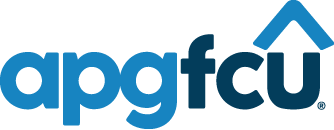Shopping for a new car can be stressful and often forces consumers to question, “Should I be buying or leasing my next car?” To make that decision, you need to weigh your financial options with your preferences. Both leasing and buying have significant advantages and disadvantages, and it’s vital to understand what you’re getting into before you sign.
Pros of Buying
By purchasing your own car, every monthly payment that you make to your lender goes toward owning the vehicle completely. And when the loan is paid off, nothing more is required. Plus, you have absolute freedom in driving as much as you want, unlike leases where there are typically mileage restrictions. Buying your vehicle also provides equity when swapping or trading your car in for a new one.
The ability to upgrade or make changes to your vehicle is another upside of owning, along with the freedom to sell whenever it fits your schedule. The process to finance a vehicle is also much less grueling than it is to lease one — lower required credit scores, refinancing options, and more deals for loans. Lastly, repairing damage or mechanical issues is a choice after purchasing a vehicle, not a requirement as leases dictate. Say a few rocks ding your hood; you can use your discretion to fix it — or not.
Cons of Buying
While there are many benefits of purchasing your own vehicle, the cost may be too much short term. Aside from the large down payment that is usually required — or strongly advised — monthly payments, interest, higher sales tax, and routine maintenance are hefty prices that could put a large dent in your wallet. Monthly payments for purchased cars are almost always higher than those of leased vehicles, plus you are required to pay the interest of the full price of the vehicle, minus the down payment, rather than on just the expected depreciation with a lease. This typically means paying several times more in interest for a loan than a lease.
Cars begin depreciating the minute they drive off of the lot. Because of this, there is virtually no way of knowing what your purchased vehicle will be worth in three, five, or 10 years. Also, most warranties do not last for the full length of car ownership, meaning that you will be responsible for fixing any costly problems previously covered in the warranty when it runs out.
Pros of Leasing
The major benefits of leasing over buying are lower monthly payments and flexibility to change to a new vehicle at the end of your lease. During a lease, you are only responsible for the expected depreciation of the vehicle while you have it, instead of the entire cost. Lower rates, sales tax, and down payments also open up the possibility of leasing a nicer car with advanced technology, safety, connectivity, and infotainment features for the same price as purchasing a lower-level vehicle.
Selling a car is stressful and time-consuming; returning a lease is not. The price of the vehicle at the end of the term is determined at the beginning of the lease, so all you need to do — assuming no damage was caused to the vehicle — is return the car to the dealership. Also, leases are usually short enough to remain in the warranty range, meaning you will likely be covered for any significant repairs or periodic maintenance — unless you caused the damage to the vehicle, which would violate your lease agreement.
Cons of Leasing
The main drawback of leasing a vehicle: You do not own the car and your payments will never lower. Terms within the leasing contract also dictate what you can and cannot do with your car. For example, most leases have a mileage limitation that restricts long-distance travel or rules against making changes to customize your car. They also outline specific auto body shops that are approved to use. Plus, while returning your lease is an easy process, you will not get any equity back for your payments. In fact, dealerships can hit you with unsuspected costs at the end of the term.
Dealerships often have high standards for leasing applicants and typically require very high credit scores and Guaranteed Asset Protection (GAP) insurance. Leases are also binding contracts that hold you personally responsible for any damage done to the car. Dealerships expect vehicles to be returned to them at the end of the lease in perfect condition and often inspect every inch thoroughly. If anything is out of the ordinary, your wallet is on the line.
There is not a definite consensus on whether leasing or buying a vehicle is better. Every person has different standards and while buying may be ideal for one, leasing may be for another. However, reviewing the benefits and drawbacks of each can help you make the smart decision about which option fits your finances and lifestyle.
Visit our website or stop by our branch today to learn how to get behind the wheel.
*All loans are subject to credit approval.
